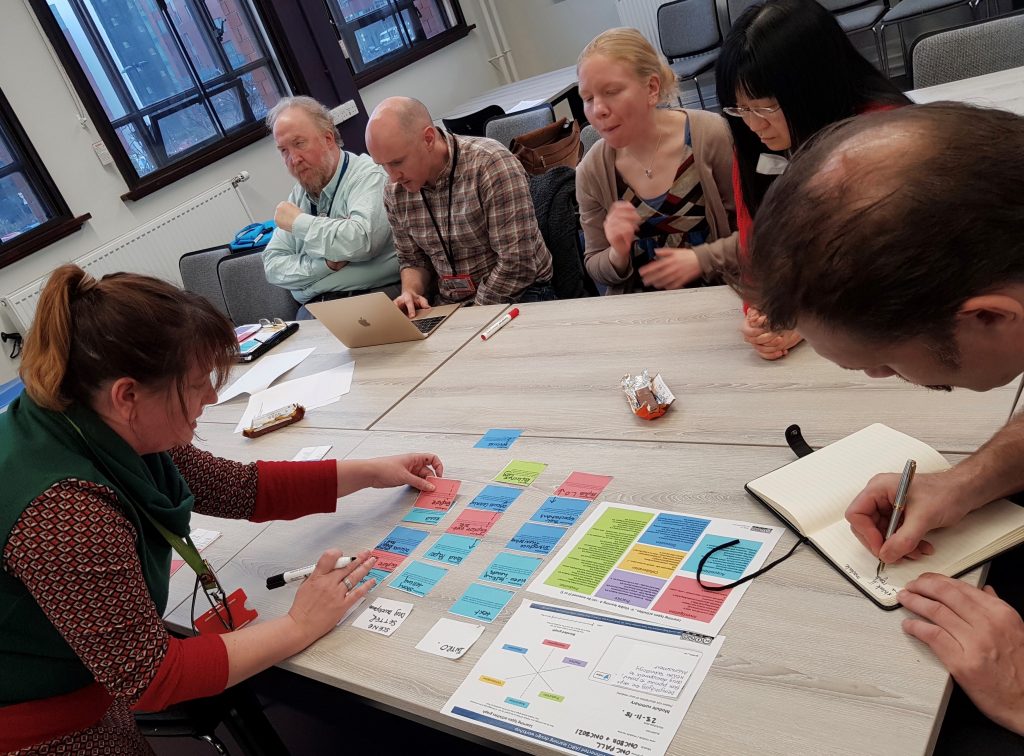Dr Victoria Hewitt, Curriculum Director
FMS Graduate School
Faculty of Medical Sciences
What did you do?
We created an assignment which assessed an online group task to develop a pain management guideline, as part of the e-learning module ONC8012: Pain Management.
Graduate Framework
This approach develops the following attributes:
- Digitally Capable
- Collaborative
Staff can find out more about the Graduate Framework on the University intranet.
Who is involved?
The module is a compulsory part of the MSc, PGDip and PGCert in Palliative Care and optional for our oncology programmes. The module leaders, Dr Victoria Hewitt and Fiona Holdsworth, led the change. We were supported by LTDS, namely Michelle Barr, who helped map the module, and Graeme Redshaw-Boxwell, who supported the development of the assessment rubric.
How did you do it?
We began by visualising the pedagogical foundations of the group task and the module overall using Conole’s Pedagogy Mapping Tool. In this way we were able to clearly demonstrate the pedagogy of the collaborative assessment integrates with the module design and assessment strategy.
Using the ABC Toolkit to map module design and learning outcomes, we planned the assessment’s timing, preparatory and formative activities.
With the support of LTDS, a rubric was designed to include product criteria (relating to the quality of the pain guideline produced) and process criteria (reflecting the quality of teamwork observed).
We used Trello to track process and collate resources. This enabled us to proactively manage technological and administrative issues, such as setting up Blackboard wikis and planning online Zoom tutorials for students.

Why did you do it?
The vision of this group assessment is to capture participative learning that relates to the authentic clinical practice of pain management. This is a Masters course of study, so the activity has to achieve Bloom’s highest taxonomical levels – that is to co-create new knowledge artefacts. We also wanted to enhance the sense of students belonging to a community of learning, despite studying at a distance and online.
Student Voice
“I got a lot out of the group wiki project in terms of having a chance to try out some teamwork and leadership skills in a way that I haven’t done before.”
“It is very motivating to have others relying on you. It feels less as though you are doing this alone”
“One of the most valuable parts of this module was the group project. It was a good opportunity to practice leadership skills and work as a [multidisciplinary team] with our different expertise.”
Does it work?
The module consistently evaluates well on EvaSys, scoring between 4.5 and 4.8 in recent years and this did not change with the introduction of the collaborative assessment. Qualitative feedback demonstrates that students enjoy the activity and, unexpectedly for us, find the teamwork and leadership opportunity beneficial.
All students participated and passed the assessment. They used a variety of technologies to manage their projects – Zoom, Blackboard discussion boards and WhatsApp were the most popular. Module leaders were appropriately approached for support but groups were largely self-directed. All the guidelines produced were clinically relevant and applicable to practice.
Extra Resources
Contact details
Victoria Hewitt, FMS Graduate School, Victoria.Hewitt@newcastle.ac.uk
